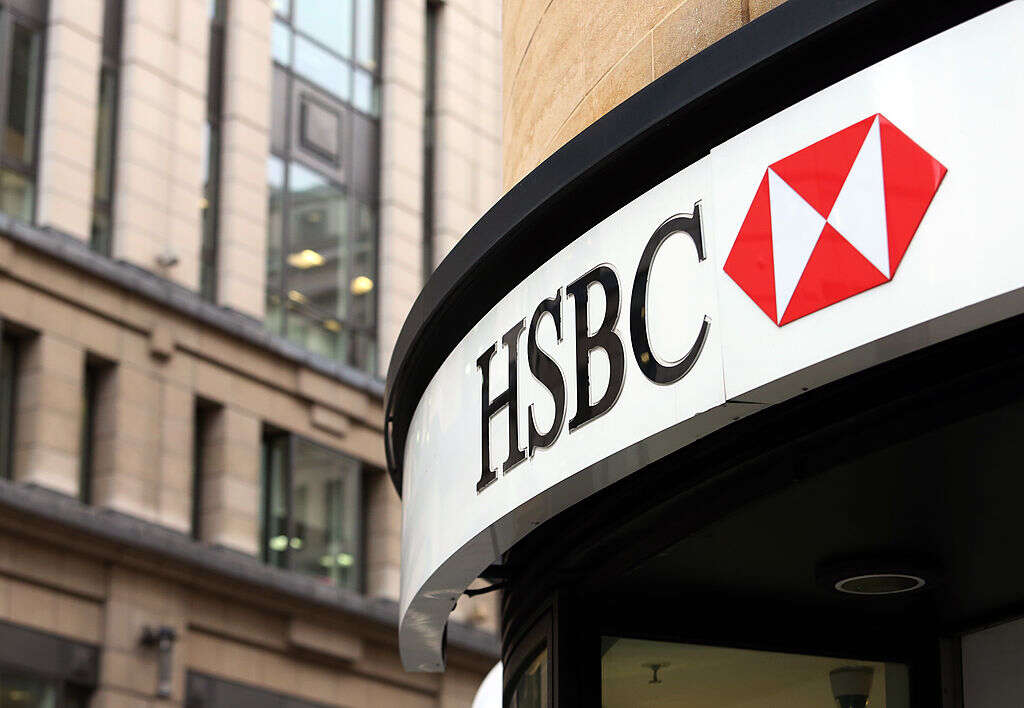
- Controversial comments on climate risk made by Stuart Kirk during a public speech in May had already been voiced on a behind-closed-doors panel discussion in September last year, Capital Monitor understands.
- Kirk had been head of responsible investments at HSBC Global Asset Management at the time he made both sets of remarks, the latest of which sparked a wave of both support and anger and led to his departure from the company.
- The revelation suggests Kirk’s former employer was aware of his views well in advance of May this year and before Cop26.
HSBC’s top executives were quick to disavow controversial remarks on climate risk made by Stuart Kirk, the then head of responsible investments at the bank’s asset management arm. But it turns out he aired similar comments in a panel discussion some eight months before delivering his now infamous speech at the FT Moral Money Summit on 19 May, Capital Monitor has learnt.
The revelation raises the clear possibility that the financial institution was aware of Kirk’s views well before it chose to suspend him in late May amid the subsequent furore.
During a virtual discussion under Chatham House rules on 24 September, Kirk voiced his opinion that climate change is a risk that investors need not worry about and have to spend too much time on, an attendee of the high-profile behind-closed-doors event tells Capital Monitor.
The session was arranged by the Forum for Asset Management Ecosystem (Fame) in partnership with The Investor Agenda, which describes itself as “a common leadership agenda on the climate crisis that is… focused on accelerating investor action for a net-zero emissions economy”.
Speaking to Capital Monitor on condition of anonymity, the attendee said the September panel was focused on sustainable finance, with an emphasis on net zero. Along with Kirk, it featured a representative from a multilateral organisation and an executive from a data analytics company, she added. It is not clear whether he was speaking in an official capacity.
What were Stuart Kirk’s climate change remarks?
The attendee said Stuart Kirk’s remarks reflected those he made in his speech at the FT forum in May, for which he was subsequently suspended and ostracised by the banking group. “The similarities to what came up with his later presentation [were] that [climate change] is not necessarily a priority from a financial risk management and planning perspective,” she said.
Kirk had argued that climate was secondary to the work of investment managers in particular and that managing climate in the secondary markets was not a huge priority, the attendee added. He had also said he felt there was misalignment between the pursuit of climate objectives and creating value for shareholders, she said.
Kirk had also suggested that investment managers were spending more time than they should on climate and that it absorbed too much of his role, the attendee added. “I’m paraphrasing, but he was suggesting… essentially that net zero is overhyped.”
During the Q&A session at the September event, some attendees said Kirk’s comments resonated with them and clarified the role of an asset manager was in relation to the climate transition, the source said.
Kirk himself declined to comment when approached by Capital Monitor, as did an HSBC spokesman.
An individual involved in organising the event also declined to comment on the panel’s content, saying Fame was a closed-door community that encouraged people to voice potentially controversial thoughts in a “safe space” about problems the industry could come together to solve.
Further questions for HSBC on climate change
That Stuart Kirk had voiced such remarks shortly before Cop26 will do little to quell concerns that he was expressing views more widely held within the HSBC group and potentially the financial industry at large. It certainly contradicts the view that he went ‘off-piste’ or even ‘rogue’ at the FT event after reportedly being given the green light to make his case on climate risk more publicly.
Interestingly, Kirk had made comments in on-record interviews on topics like greenwashing and fossil fuels since the Fame event in September that were more in line with the asset manager’s formal commitments to net zero and climate change in general. The asset management firm had also made public statements on the importance of climate action in the run-up to Cop26.
Arguably even more importantly, the affair further underlines the buck-passing, can-kicking and false claims that remain prevalent around climate action, not just among banks and fund managers, but also asset owners, corporates, auditors and investment consultants. Policymakers themselves appear little better; consider the candidates to replace Boris Johnson as British prime minister.
Emma Howard Boyd said last week in her final speech as chair of the UK’s Environment Agency, after referencing Kirk’s May comments: “There are many people in the private sector who think government will deal with the climate emergency. Yet there are many people in politics who think the private sector will deal with the climate emergency. And this is why independent regulation is vital.
“Environmental regulation must work in lockstep with financial regulation and economic regulation to ensure incentives and penalties have enough clout to drive change,” she added. This will be a challenge, given the widespread lobbying against policies to tackle climate change by companies claiming to prioritise the environment in their business or investment strategies.
At least Kirk has been open about his thinking in this regard in the face of numerous dissenting voices, including those of an employer that had previously backed him.
Capital Monitor is hosting the Webinar series, Making Sense of Net Zero. Find out more information on NSMG.live.




